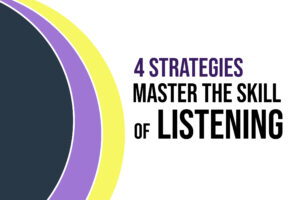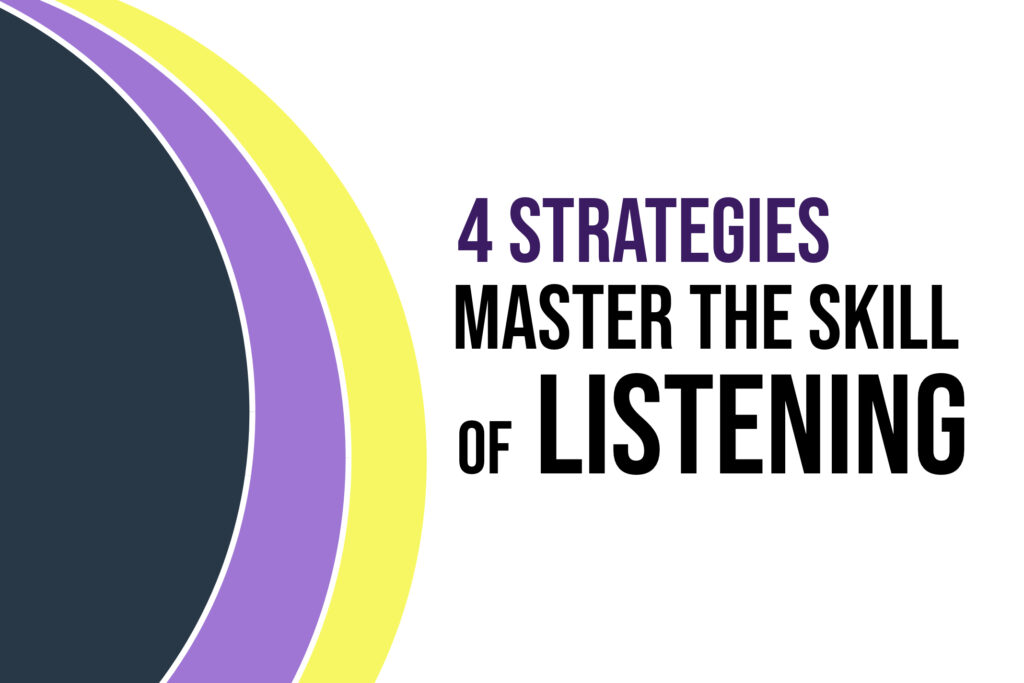
Table of Contents

Subscribe to Our Newsletter
Interested in access all resources and materials on ESL Lifeline for one low price? Click here to find out how!
4 Strategies to Master The Skill of Listening

Introduction
Have you ever felt overwhelmed by a barrage of English words, struggling to grasp the meaning of a conversation or lecture? Listening is a crucial language skill that often gets overlooked. It’s more than just hearing sounds; it’s about actively engaging with the spoken word and understanding its nuances. In this post, we’ll explore effective strategies to improve your learners’ English listening skills and unlock the full potential of this essential language component.
Why Listening Matters
Beyond language proficiency, effective listening can have a profound impact on your students’ personal and professional life. It fosters better communication, enhances empathy, and can even be added to your CV as a skill. Imagine being able to effortlessly understand and respond to native English speakers, confidently navigate complex discussions, and absorb new information with ease.
Common Listening Challenges
Many learners face common hurdles when trying to improve their listening skills. These challenges may include:
- Rapid Speech: Difficulty understanding native speakers who speak quickly. This is why training students in bottom-up listening is so essential to foundational growth in listening skills.
- Accents and Dialects: Struggling to comprehend different accents and regional variations. With English being the dominant language spoken throughout the world, it is important for students to embrace the tapestry of accents available to them.
- Unfamiliar Vocabulary: Encountering unfamiliar words and phrases.
- Distractions: Being distracted by background noise or irrelevant information. What I tell my students all the time is that the more you practice being distracted the more you become a distracted person. Read my post about Distraction and Attention to learn more about how important it is to train attention in the age of distraction.
Strategies for Effective Listening
There are ways, though, to help your students overcome these challenges and become proficient listeners. There are 4 areas that you can tell your students to focus on when training their listening skills: 1) Active Listening, 2) Vocabulary Expansion, 3) Immersion, and 4) Regular Practice.
Active Listening:
- Pay Attention: Focus on the speaker and their message.
- Paraphrase: Restate the main points in your own words.
- Ask Questions: Clarify any points you don’t understand.
Vocabulary Expansion:
- Read Regularly: Expose yourself to new vocabulary through reading.
- Use a Dictionary: Look up unfamiliar words and their definitions.
- Practice Using New Words: Incorporate them into your conversations.
Immersion in English:
- Watch English-Language Media: Movies, TV shows, and documentaries.
- Listen to Podcasts and Music: Expose yourself to various accents and styles.
- Practice Speaking Regularly: Engage in conversations with native speakers or language exchange partners.
Regular Practice:
- Set Aside Time: Dedicate specific time each day to listening practice.
- Start Small: Begin with easier listening materials and gradually increase difficulty.
- Be Patient: Progress takes time. Don’t get discouraged by setbacks.
Conclusion
Improving your students’ English listening skills is a journey, not a destination. By actively engaging them with the spoken word, expanding their vocabulary, immersing them in English, and getting them to practice regularly, you can help them overcome challenges and unlock their full potential of this essential language skill.
ESL Lifeline has lots of listening comprehension resources that help students build listening skills. They’ll build their skills while interacting with exciting topics like Black Holes and Movies.
UNLIMITED DOWNLOADS
Interested in learning how you can transform your instruction and get your prep-time back??





